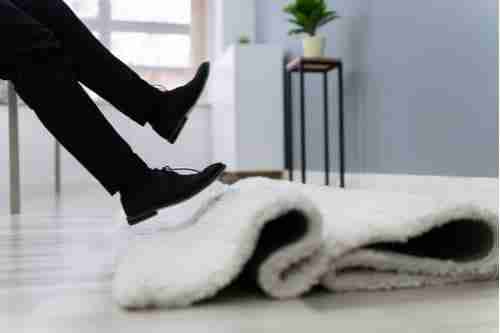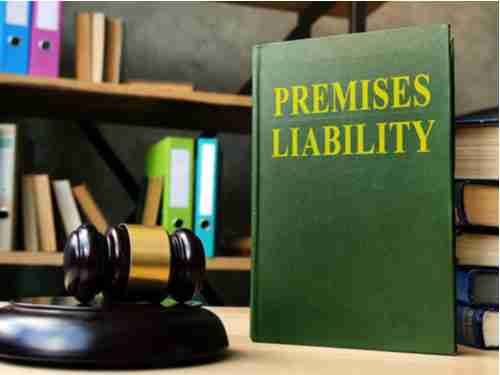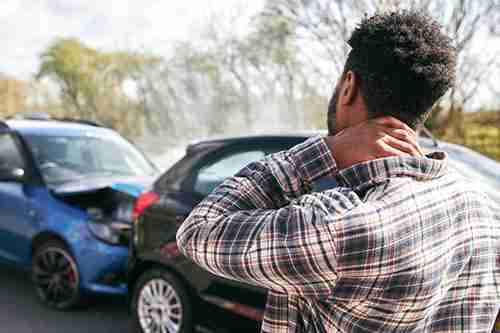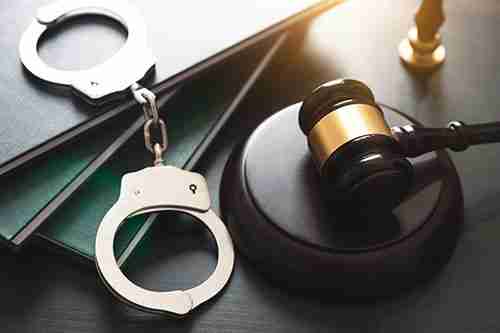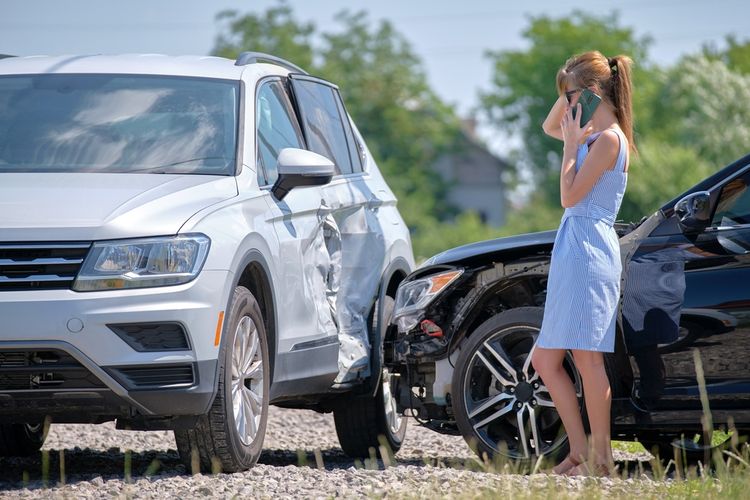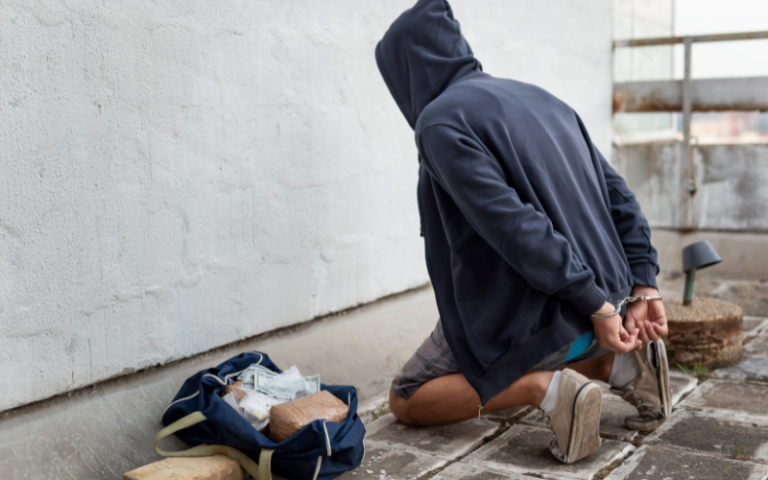According to federal, state, and local laws, property owners have certain obligations to maintain relatively safe premises and to warn others of any unsafe conditions under certain situations. While the laws may vary depending on the specific location, the basic underlying facts are similar – property owners are supposed to keep their buildings and properties safe for authorized visitors.
When an injury occurs on a person’s property as a result of hazardous conditions, the victims have the right to file a premise liability case. Failure to keep properties safe could result in devastating personal injuries, sometimes even death. The Decatur premises liability lawyers at the SHElaw firm® have extensive experience and take pride in helping victims recover compensation from reckless or negligent property owners.
We are always available to speak with you about your claim and evaluate your case. If you or a loved one was hurt on another person’s property and need an experienced Decatur personal injury lawyer, call the SHElaw firm® at 470-788-8930 for a free, no-obligation consultation.
Do I Have a Premises Liability Claim?
GA. Code § 51-3-1 outlines the obligations that property owners or occupiers have towards their invitees. It states that they can be held responsible for any injuries caused by their failure to keep their premises safe, especially if they expressly or impliedly induce, invite, or lead others to venture into their property.
This generally means that you should have been either invited as a guest on the premises or had the right to be on the property when the accident occurred.
If you were injured while on someone else’s property, you might be wondering whether you have a valid premises liability claim. To help you establish whether you have a premises liability claim, consider the following list of questions:
- Did you get in an accident on another person’s property?
- Were you explicitly or impliedly invited to the property, or had other lawful reasons to be on the property at the time of the injury?
- Did the dangerous conditions exist on the said property?
- Was the owner aware of or it would have been reasonable to expect them to know about the hazards or dangers on their property?
- Had the owner failed to reasonably resolve the hazards or dangers on the premises?
- Did the owner fail to warn visitors appropriately of the hazards or dangers?
- Were you seriously injured in the accident?
- Did you require medical attention because of the accident?
- Has the overall quality of your life been affected since the accident?
- Did you miss work or regular income due to temporary or permanent disability due to the injuries you suffered in the accident?
- If the accident involved a trespassing child, was there an attractive nuisance on the property?
If you answer “yes” to most of these questions, you likely have a premises liability case. However, keep in mind that premises liability law has a lot of subtle intricacies, and your best way to know for sure if you have a case is to consult with an experienced premises liability attorney.
The insurance company that provides coverage for the property you were injured on will likely try to deny liability or limit the amount of compensation they offer. We are here to help you get the maximum compensation you deserve. We can let you know about your legal options with no obligations.
What Are Common Injuries in Premises Liability Cases in Decatur?
Premises liability law covers a wide variety of potential situations, and it’s essential to know this when researching prospective lawyers so that you find one with experience in the area most relevant to your claim.
Some of the most common kinds of accidents we see include:
- Structural faults that lead to an injury
- Tripping on uneven floors or unmarked steps
- Slipping & falling on wet surfaces
- Children injured while playing in an unsafe area
- Poorly designed or faulty stairs or railings
- Being hit by a falling object
- Escalator and elevator accidents
Just like with other personal injury cases, to win a premises liability case you must be able to prove that your injuries were directly caused by the negligence of the property owner. Some of the ways you can prove this include your testimony, the testimony of witnesses, medical records, as well as photos of the safety hazard that caused your injuries.
Who is Responsible for an Injury in a Premises Liability Case?
To have a valid claim, you should be able to demonstrate how the property owner or property manager should have been aware of or should have known about the hazardous condition on the property but failed to take action. You also need to establish the following facts:
- There was a hazardous condition or an unsafe condition on the property.
- The property owner/manager was aware of the condition or should have known about it if they were adequately caring for the property.
- The owner/manager failed to repair or remove the dangerous condition.
- The owner/manager did not properly warn you about the dangerous condition.
- The unsafe condition was the direct cause of your injuries.
How Do You Prove Negligence in a Premises Liability Case?
There are four elements required to prove negligence in personal injury cases, including premises liability cases. For your claim to be successful, you must prove each of the following individual elements. These include:
Duty of Care
The property owner or the occupier had a duty to the premises safe from hazardous conditions. In premises liability cases, it’s the legal duty of a property owner (or occupier) to keep their property reasonably safe.
Breach of Duty of Care
The owner or occupier failed to uphold their duty of care. For premises liability cases, you have to demonstrate that the owner of the occupier was aware of the hazard but failed to warn or repair the condition in time. Neglecting to resolve such a hazard is considered a breach of duty.
Causation
This breach of duty was the direct cause of the accident and your injuries. The injury must have been a result of the action or inaction of the property owner where the accident occurred. The victim is required to have exercised “reasonable” care to prevent their injury and might not be eligible for compensation if they are found fully or partially at fault.
Damages
You also have to demonstrate that you suffered compensable damages. These could be medical expenses, lost earning capacity, lost income, pain and suffering, and mental anguish. The nature and amount of compensation you will receive largely depends on the kind of injuries you sustained.
It’s also worth noting that Georgia follows the modified comparative negligence rule, where the plaintiff it’s entitled to compensation if they are 49% or less at fault for the accident. This would also mean that if you are found to be 50% or more responsible for the accident, you might not be eligible for compensation.
If you are deemed to have contributed to the accident, the compensation award will be reduced proportionally based on your percentage of fault.
What if My Child Is Injured?
Georgia law treats children trespassers differently than adult trespassers. This is covered under the attractive nuisance doctrine, which requires that special precautions be taken to protect children who may trespass onto a property due to a given feature on the property, such as an abandoned car or a well, which exposes them to hazards.
With this in mind, any potential hazards should be secured in such a way that children couldn’t possibly enter or hurt themselves if they did. For instance, unused areas like drain pools should be locked away or fenced. The fence should be high enough such that a child cannot easily climb it. Hazards like open pits or wells should be covered with something that a child cannot lift or open.
To bring a lawsuit under the attractive nuisance doctrine, the following conditions must be met:
- The property manager or owner was aware or should have reasonably known that children are likely to trespass.
- The property manager or owner was aware or should have foreseen that the feature in question bears an unreasonable risk of death or injury to children.
- The child was too young to understand the risks of trespassing and interacting with the feature in question.
- The resources and efforts needed to remove the danger are outweighed by the risk to children.
- The property manager or owner failed to exercise reasonable care to keep children from the dangers of the attractive nuisance.
Keep in mind that this ruling usually does not apply to hazards that are normally understood by children. This may include the dangers of water, fire, and falling from heights. For example, if a child trespasses to swim in a private or public pool and gets injured doing so, the manager or owner of the property might not be held liable.
The laws and precedents surrounding premises liability can be quite confusing, to say the least. Your best bet is to speak with an experienced Decatur premises liability lawyer if your child was injured on someone else’s property.
What if I Was Injured at My Workplace?
If you were injured in your workplace, it’s generally understood that you are entitled to workers’ compensation – whether or not the business was responsible for creating the hazardous condition that caused the injury.
What is much less known is that employees might be entitled to separate compensation, alongside workers comp, in case they are injured due to a hazard created by someone else other than their employer.
Workers’ compensation and premises liability might seem like different areas of law, and in many ways they are. However, the two areas intersect in certain situations. For instance, an office worker could trip on a torn carpet area in the lobby of an office building and fall.
A truck driver might sleep on an ice patch while making a delivery. In such cases, the worker might be able to file a workers’ comp claim and a separate premises liability claim against the owner of the property where they were injured.
Workers’ compensation claims are generally meant to cover medical expenses, lost income, and disability. In case our workplace injury results in a worker’s death, their family may receive compensation on behalf of the deceased as well as reimbursement for burial and funeral costs In most cases, workers’ compensation covers up to two-thirds of your income (wages).
Is There a Deadline for Filing a Premises Liability Claim?
Georgia Code § 9-3-33 sets specific deadlines, also referred to as statutes of limitations, for filing certain kinds of lawsuits. For cases involving personal injury, such as premises liability lawsuits, the deadline for bringing a lawsuit is two years from the date of the accident.
The deadline can be shorter or longer depending on the circumstances surrounding the case, such as when the injured person is below the age of 18 or the property owner is a government entity.
While the two-year deadline might seem like a long time, premises liability cases tend to be complex. You should contact a Decatur premises liability lawyer as soon as possible following the accident to give your case the best chance for success.
Talk to a Passionate Decatur Premises Liability Lawyer Today!
Premises liability cases typically involve a property owner or occupier allowing a hazardous condition on the property to remain in place, resulting in avoidable injuries when a person interacts with the condition.
At the SHElaw firm®, our team works to protect your rights, prove the facts in your case, and fight for the compensation you rightfully deserve. You don’t have to suffer financially because of the actions of a negligent property owner.
Get in touch with our premises liability attorneys in Decatur today at 470-788-8930 to schedule your free case evaluation.
We can fight against insurance companies and other parties that may try to delay these kinds of cases. And since we work on a contingency fee basis, you won’t need to pay us anything upfront for our services. Instead, we will deduct our payment from the settlement award you receive once we win the case.
